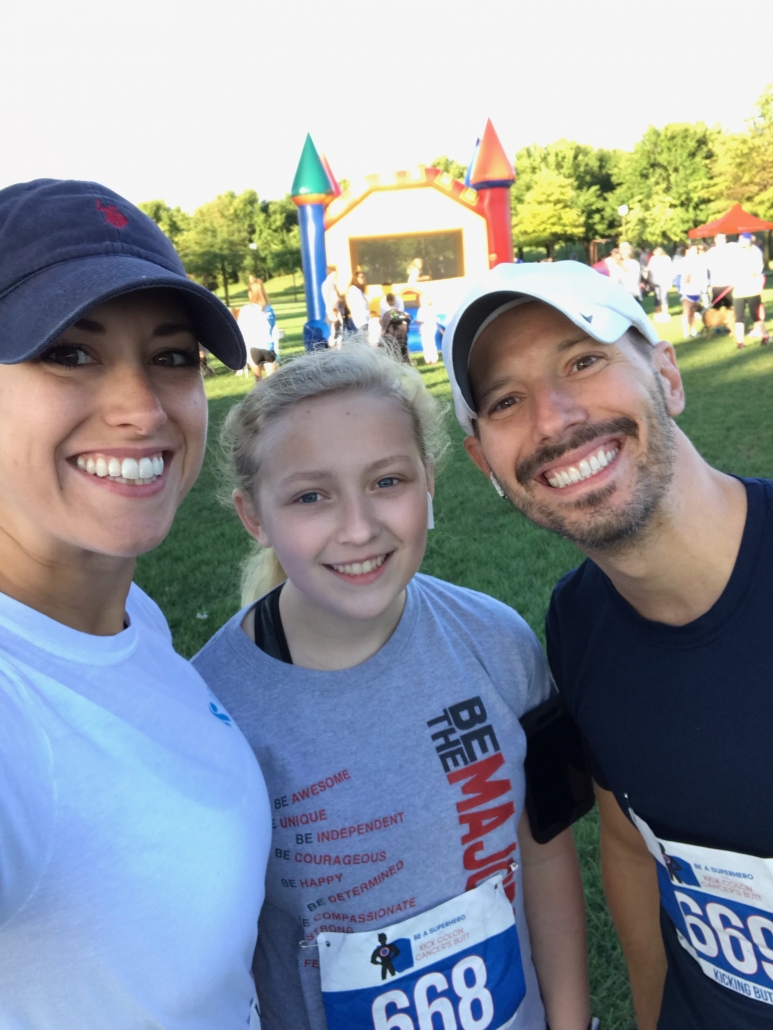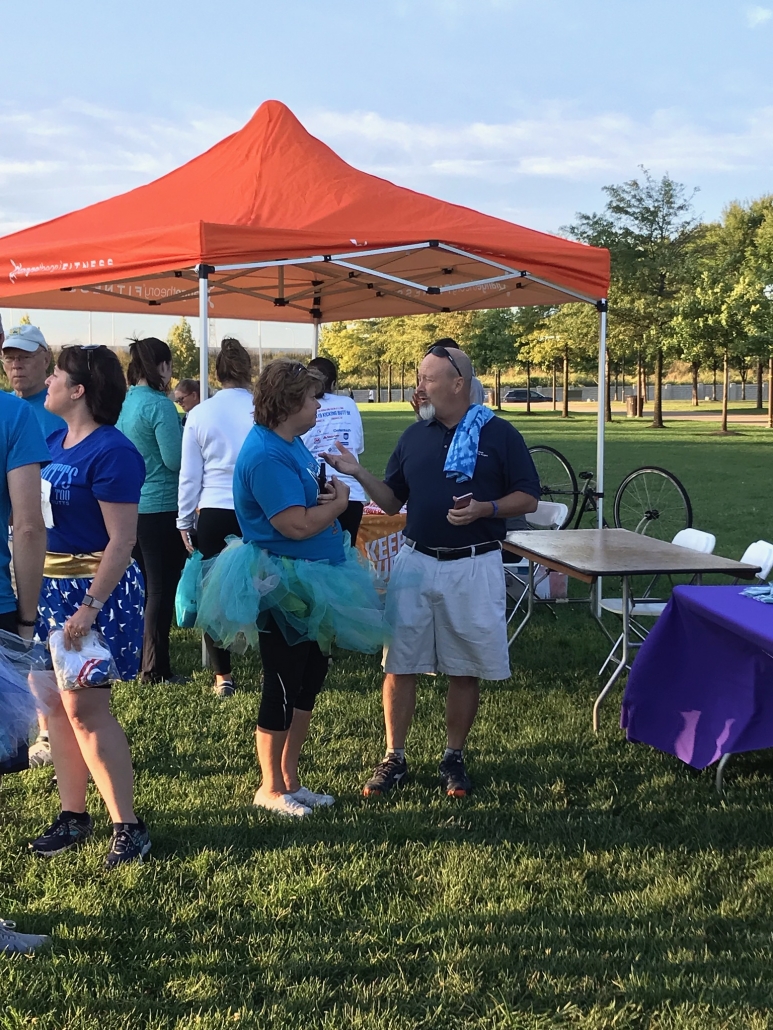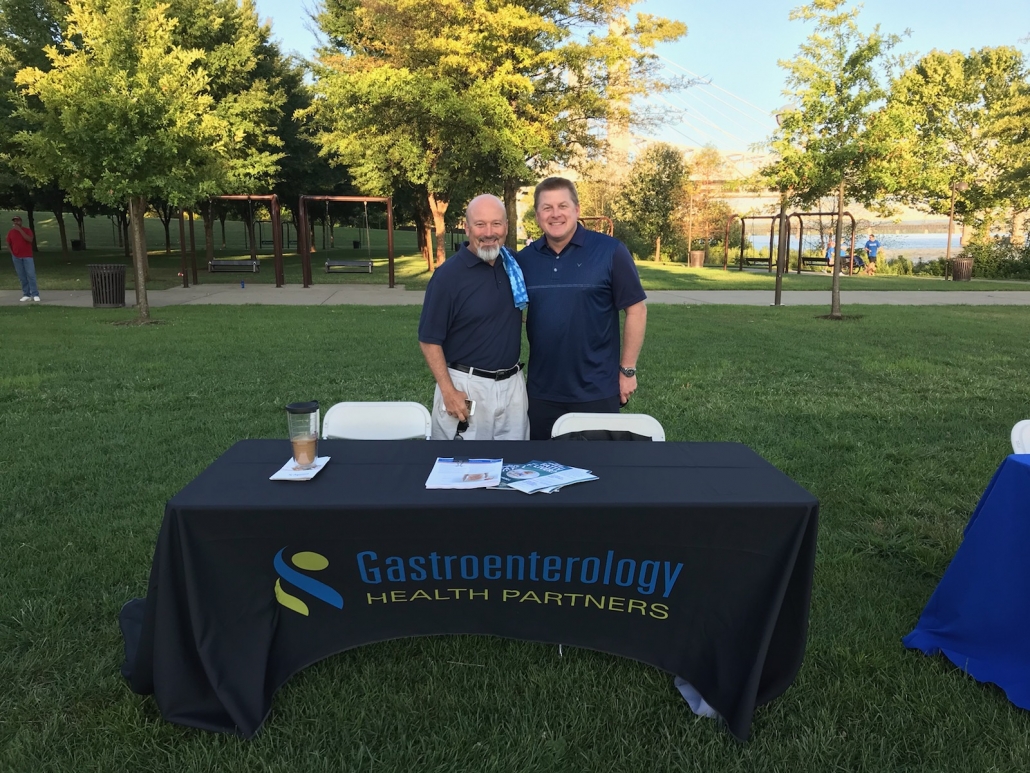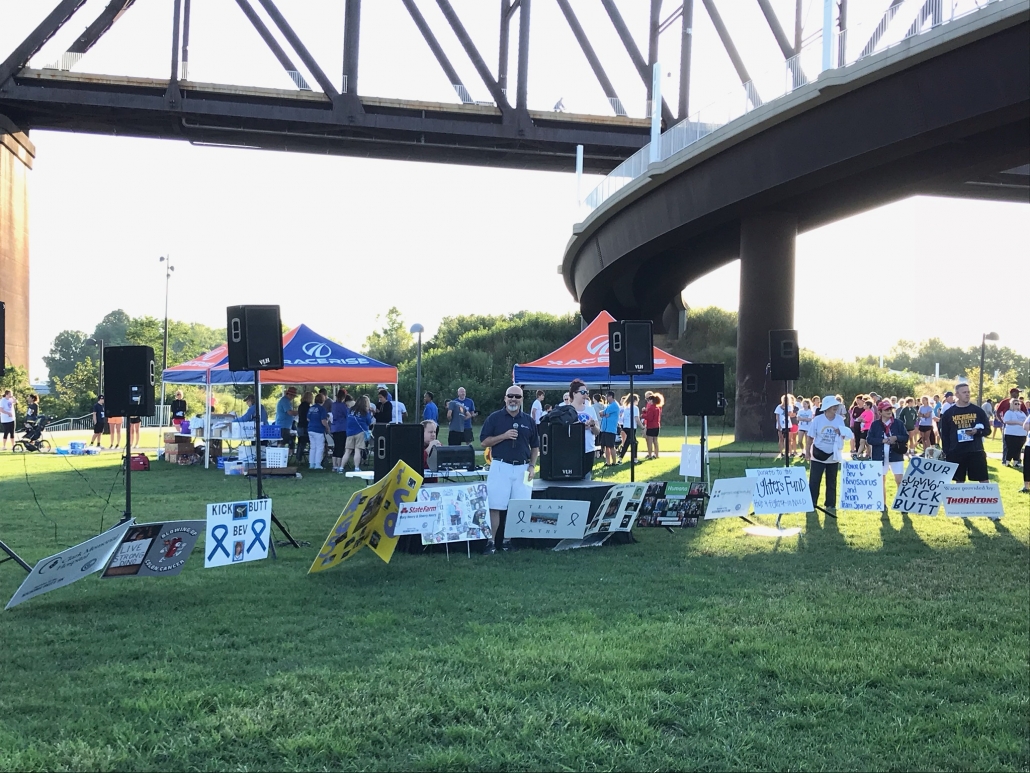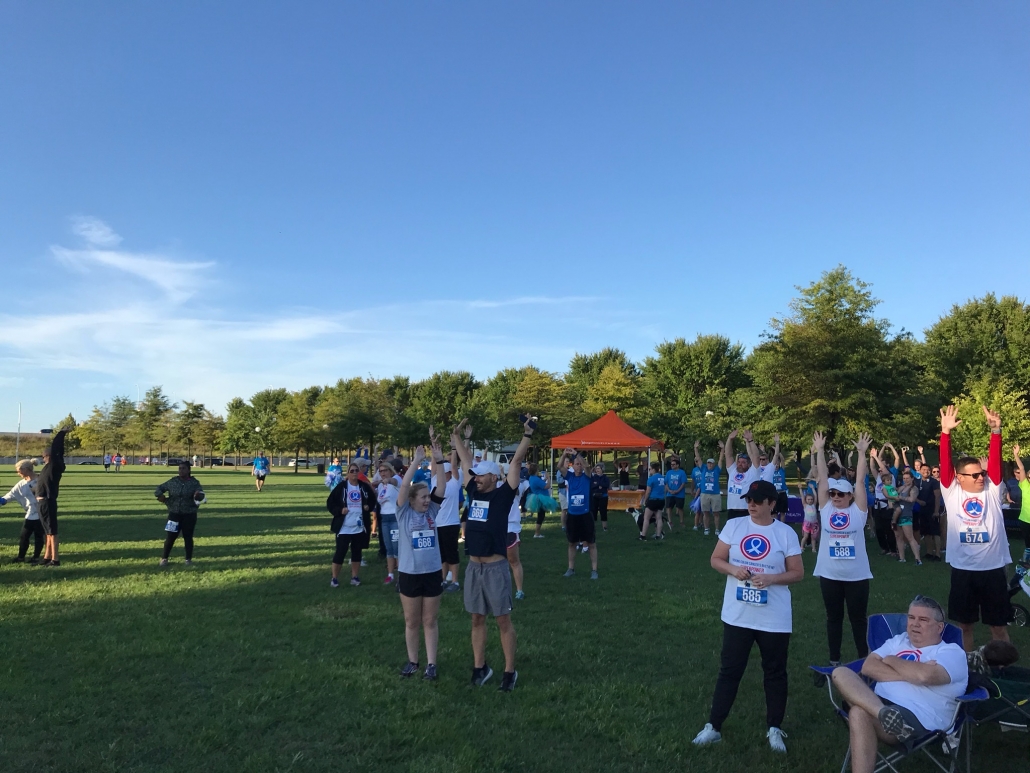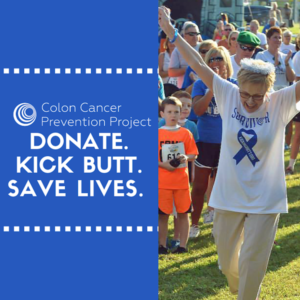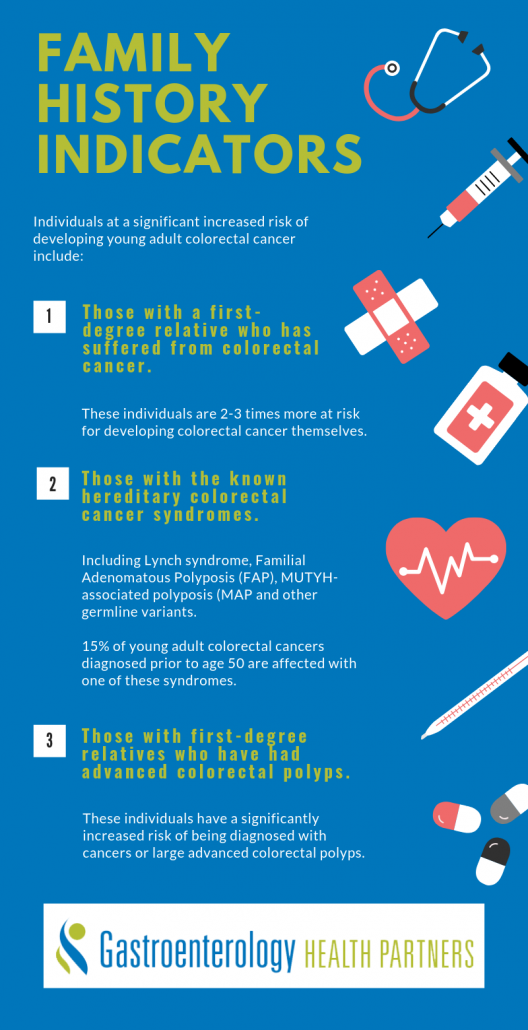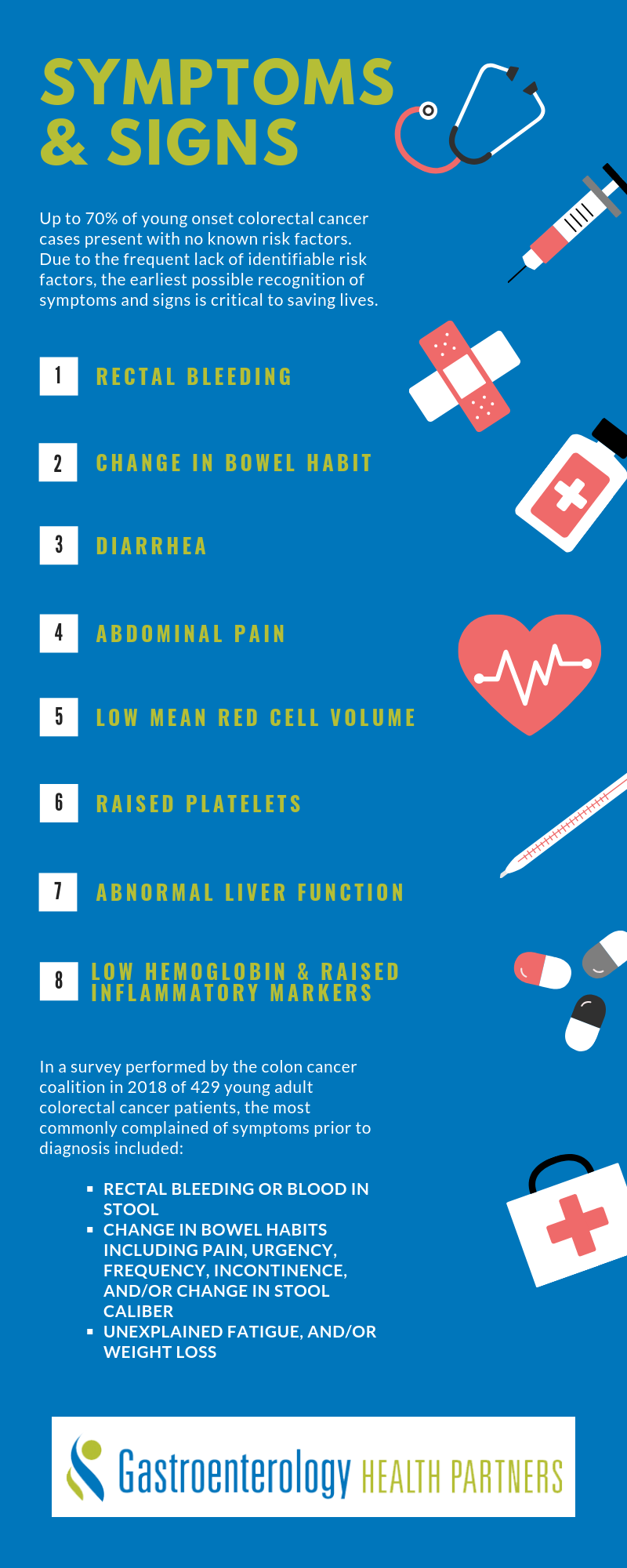October’s MD Update: Dr. Jones Speaks “Going on Offense Against Cancer”
Our very own Dr. Whitney Jones graced the cover of MD-Update’s October issue. Read about how he embraces preventative measures to beat colon cancer before it starts in the following article.
“We spend a lot of money on healthcare and health insurance. The problem is, we’re not spending enough on prevention.”— Whitney Jones, MD
In the movie “Karate Kid,” there’s a scene where Mr. Miyagi asks the title character if he’s training to fight. In his light bulb moment, the student responds that he trains, “So I won’t have to fight.”
Make no mistake, Whitney Jones, MD, knows how to treat cancer. He’s trained for it and has years of experience in it. But it’s a fight he would prefer doesn’t take place.
“We’re going on offense against cancer,” says Jones, a gastroenterologist at Gastroenterology Health Partners (GHP) in Louisville. “We are working on becoming the number one state and the first in the nation to develop programs where we can use genetic testing. We spend a lot of money on healthcare and health insurance. The problem is, we’re not spending enough on prevention. The cost of cancer treatments totally overwhelms the cost of prevention.”
That has been the central message and purpose of the Kentucky Colon Cancer Prevention Project, which Jones helped found in 2004. The project’s work includes education, advocacy, survivor support, and health system change.
“It put the work of the state in front of the legislature,” Jones says, noting that a diverse group of leaders from across the state formed the project’s advisory committee. “It added a mix of healthcare, politics, and business that was catalytic.”
The project has received state funding as well as additional funding from the Kentucky Cancer Foundation, which Jones also helped found in 2012. “We have helped pay for a lot of uninsured people to get colorectal cancer screening,” Jones says.
The impact of the Colon Cancer Prevention Project is reflected in the state’s improvement versus the rest of the country. Jones notes that Kentucky ranked 49th out of 50 in the nation in colon cancer prevention statistics when the project was launched. The state also had the highest rates of incidence and mortality in the nation. Earlier this year, Kentucky ranked 17th best in the nation in the same colon cancer related categories and earned an American Cancer Society Achievement Award for the most improved state in the nation for colorectal screening over the past 15 years.
“When we started our work at the Colon Cancer Prevention Project, there was a huge gap between what could be done and what we were doing,” Jones says. “It’s been a broad coalition, including many of our state leaders and city officials. I think it’s proven that Kentucky can address its own problems, we can develop solutions, we can implement them locally, and we can save lives and save money.”


